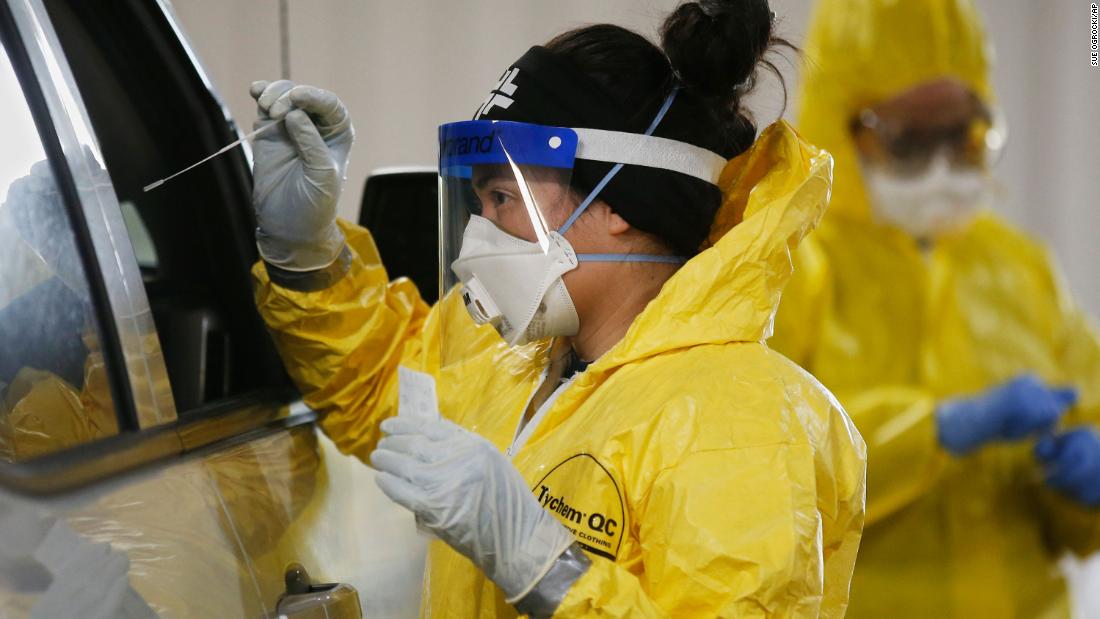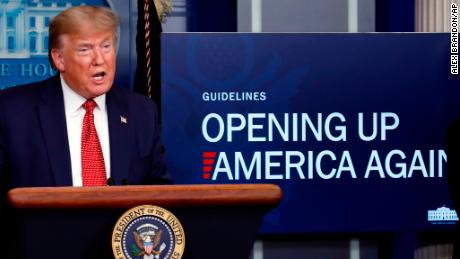As cases start to plateau in some big cities and along the coasts, coronavirus is catching fire in rural states
Just as cases are starting to plateau in some big cities and along the coasts, the coronavirus is catching fire in rural states across the American heartland, where there has been a small but significant spike this week in cases. Playing out amid these outbreaks is a clash between a frontier culture that values individual freedom and personal responsibility, and the onerous but necessary restrictions to contain a novel biological threat.
The remaining states, North Dakota, Utah and Wyoming each saw an increase in cases, but more in line with other places that have stay-at-home orders. And all of those numbers may very well undercount the total cases, given a persistent lack of testing across the US.
This trend undermines the notion perpetuated by President Donald Trump and some of his Republican allies that the restrictive social-distancing measures aren’t necessary in rural America — and that these states even offer a model for reopening the country.
“If you look at Montana, Wyoming, North Dakota — that’s a lot different than New York, it’s a lot different than New Jersey,” Trump said at Thursday’s coronavirus task force briefing, adding that 29 states are “in that ballgame” of being ready to be reopened first.
“We have large sections of the country right now that can start thinking about opening,” Trump added.
A ‘mythic story’ of rural-urban divide
Laura Bellis, a progressive activist in Tulsa who has been a leading voice urging Oklahoma to adopt and enforce a stay-at-home policy, said she believes the resistance to such orders is grounded in a false view of an urban-rural divide.
“There’s a mythic story that they have really different needs, when we’re much more inextricably linked than that,” Bellis told CNN.
The governors of the holdout states frequently invoke middle-American, conservative values when defending their decisions not to issue stay-at-home orders. South Dakota’s Republican governor Kristi Noem has said her office has “trusted South Dakotans to exercise personal responsibility.” And Gov. Pete Ricketts of Nebraska defended his call for voluntary social distancing as opposed to a stay-at-home order.
But while the American heartland is far less dense than New York and other cities and states on the coasts, it is home to much of the country’s agricultural and manufacturing base. The threat coronavirus poses to those sectors of the economy has begun to arrive.
In Iowa, for instance, two separate Tysons food processing plants have also closed due to outbreaks that have so far caused the deaths of two workers.
With the real potential for higher prices and even food shortages, insufficient action by Republican governors in the heartland could continue to ripple across the country in ways that would adversely affect the lives of Americans everywhere.
The governors in each of these states continue to insist that their own approach, short of a stay-at-home order, is the best way to combat the virus for their individual states — for the time being, at least.
“If we need to do more, we will do more,” Gov. Asa Hutchinson of Arkansas told CNN’s Jake Tapper Sunday on “State of the Union.” “So that’s always an option on the table if we have to shelter in place. But right now, what we’re doing proves to be successful, this targeted approach.”
![]()




